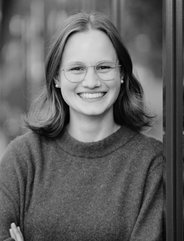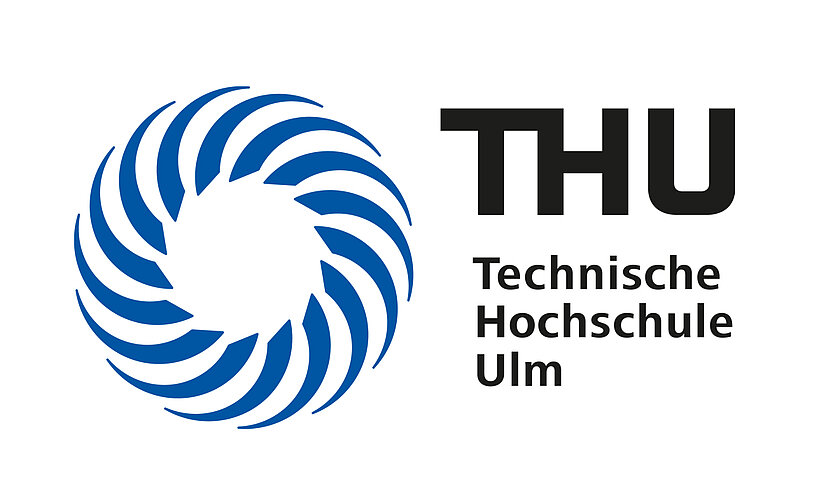Industrial Engineering (BEng)
Industrial engineering combines technology and business administration. A well-founded and practice-oriented course of study with excellent study conditions awaits you. After completing your studies, you will have excellent career opportunities in large and medium-sized industrial, commercial and service companies. During your studies, you can focus on one of the following three areas by choosing a main focus:
- Production: Students learn how business processes work and how they are optimized. They develop technical design and solution options, check them for their expediency and assess them for economic efficiency.
- Logistics: Logistical requirements are increasing: "immediately, everything, everywhere" – and at low cost. Students learn how production, storage and transport processes of industry and trade are optimally designed. Both from the point of view of technical innovations and digital applications as well as with business calculations.
- Product Management and Sales: As one of just a few industrial engineering courses in Germany, we prepare students with this focus to analyze markets, customers and sales models and to develop creative products and sales concepts for the digital age.
The programme is offered in cooperation with the Ulm University of Applied Sciences (opens in a new window). The business, legal and language subjects are taught at HNU and the technical subjects at the Ulm University of Applied Sciences (opens in a new window). An advantage to this programme is that students benefit from the equipment and services of both universities of applied sciences.
That extra bit of practice!
Practical phases including internship semesters take place in the company and have a minimum duration of seven months. Students also have the option of pursuing dual studies according to the Ulm Model. With this model, students obtain two full-fledged qualifications: one vocational training qualification from the Chamber of Industry and Commerce and one Bachelor of Engineering (BEng) degree.
Admission and application
Admission requirements
- Entrance qualification for a university of applied sciences (valid in Bavaria) or Abitur
- The programme is approval-free
- For international applicants: German language skills on level C1
- Interest in economic issues and technical understanding
- Completion of a pre-study internship
Application period
Winter semester: 02.05. – 15.07.
Summer semester: 15.11. – 15.01., extended until 02.03.
About the programme
Content of the programme
Occupy interfaces and build bridges - that are the tasks of industrial engineers. Since processes are becoming more and more complex, industry and sercices need specialists who are technically versed and can think in business terms at the same time. Thanks to its interdisciplinary orientation, our Industrial Engineering course covers exactly these requirements.
Business Studies
- The early semesters focus on the fundamentals of business processes and interrelationships as well as basic economic methodology.
- The advanced semesters focus on topics such as business management and human resources management. Students also have the opportunity to register for electives that are related to a specific field as well as courses on soft skills, for example team and rhetoric skills.
Technology, mathematics and natural sciences
- In the first semesters the focus is on general technical knowledge and engineering fundamentals.
- In the later semesters topics of industrial production such as production management and project and information management are dealt with.
- By choosing a main and secondary focus, students can focus on different technical areas (e.g. production and logistics) depending on their interests.
Practical semester
- In the fifth semester students leave the university temporarily and do an internship.
- During your practical semester, you should apply concepts and methods from your studies in the company and take new experiences from company practice into the last semester of your studies in order to combine theory and practice in a meaningful way.
Structure of the programme
The course is divided into three phases over seven semesters: the basic course (1-2), the main course (from semester 3) and the practical phase, which includes the practical semester (semester 5) and the bachelor thesis (semester 7).
The first two semesters deal with fundamental concepts of these fields. After that, you choose your main focus: either production, logistics or product management and sales.
Semester 1-2:
- Basics of Business Administration
- Economics I
- IT-Management
- Engineering Basics
- Mathematics
- English
- Physical principles and sustainability
- Design Theory (CAD)
- Accounting
- Fields of Business Engineering
Semester 3-4:
- Applied Statistics and Research
- Controlling and investment calculation
- Commercial law
- Production
- Project- and Informationmanagement
- Subjects of the choosen specialization
Semester 5:
- Practical Semester
Semester 6-7:
- Strategic Management
- Human Resources Management
- Marketing
- Subjects of the specialization
- Subjects of the secondary focus
- Elective Subject
- Seminar paper
- Bachelor Thesis
Special features
Flexibility and Specialization
The degree programme combines flexibility and specialization in a very special way: Through the main focus areas
- Production,
- Logistics or
- Product management and Sales.
You can focus on the field which is most interesting to you and whose job prospects appeal to you.
However, you do not have to make this decision at the beginning of your studies, but only when you have settled into your studies in the first two semesters of your basic studies and already have a better idea of where your interests lie.
Optional: Study with integrated vocational training or with in-depth practical experience possible
Would you like to gain solid professional experience in a company of your choice during your studies and apply the theory you have learned during your studies directly in practice? Studying according to the Ulm model makes this possible by combining university studies with vocational training. In this study model, you alternate between practical and study sections in a company or at the university and thus acquire two full degrees in just nine semesters: an IHK apprenticeship and a Bachelor of Engineering (B.Eng). You can find more information on this on the following page:
Career perspectives
This degree programme gives you attractive opportunities to work in a variety of sectors, from industry and trade to services. After successfully completing your studies, you can work in companies with industrial production as well as in the electrical industry, in logistics and software companies as well as in consulting companies. Your fields of application are particularly at the interface between technology and business administration.
Exemplary professional fields are:
- Strategic Purchasing
- Supply Chain Management und Logistics
- Production Planning and Control
- Technical sales
- Controlling
- Corporate development and strategy
- Business Consulting
The interdisciplinarity between the natural and engineering sciences on the one hand and economics and law on the other hand is one of the outstanding characteristics of the industrial engineering degree and opens up extraordinarily good career prospects for you. According to the Association of German Industrial Engineers (VDW), a large proportion of companies prefer to hire industrial engineers - even in times of crisis. Due to the qualification and personality profile of the students, the career prospects are rated as very positive by the HR managers surveyed and the salary prospects are above average.
Practical relevance
The degree programme is characterized by a high application orientation. During their studies, students work on practice-oriented tasks in laboratories and through case studies and practical projects. Further practical experience results in particular from pre-internships, practical semesters and bachelor thesis.
Pre-Study Internship: A 6-week pre-study internship must be proven before the start of the study programme. During the pre-study internship, practical experience and basic technical knowledge of manual and mechanical processing technology are imparted in suitable companies. Completed training in the relevant field or training that is equivalent to the pre-study internship as part of school training can be recognised.
Practical semester: The practical semester is planned for the 5th semester and lasts a maximum of 6 months (at least 100 attendance days). The internship must be completed in a company outside of Ulm University of Applied Sciences and Neu-Ulm University of Applied Sciences. Here you apply the knowledge and skills you have acquired in your previous studies in the respective technical and operational practice and acquire additional knowledge and experience from the respective technical practice. The company is chosen by the students themselves. However, the THU and HNU can help with the search (e.g. via databases of possible internships).
Bachelor thesis: The bachelor thesis takes place in the 7th semester. Students often look for a topic that is developed in cooperation with companies and thus ensures a high level of application relevance.
Internships and stays abroad
Stays abroad are not mandatory, but are recommended. It is possivle to spend a semester abroad and/or complete an internship abroad. Shorter stays such as short internships, language courses or summer or winter schools are possible. Students receice advice from the Neu-Ulm University of Applied Science and are supported in their implementation.
Courses from the Language Center can be taken in preparation. A semester abroad fits well befor or after the practical semester. For the recognition of credits earned abroad, the elective subject and the sutdent research project (5 ECTS each) are particularly suitable.
Depending on the partner university, further courses are best chosen to cover up competences from the compulsory curriculum. (Individual examination via the Office for Studies.)
Pre-study internship
1. What are the formal requirements?
In this degree programme you must proof a completion of a practical training before starting your studies. It must correspond to the choosen study field.
You can replace the practical training or an equivalent training of school education with a practical activity corresponding to the course of study (=Pre-study internship).
- Duration: Minimum 6 weeks (full-time). The six weeks do not necessarily have to be contiguous.
- Deadline: The pre-study internship must be completed by the start of lectures.
- Proof: You can prove the period and type of activities with an internship certificate. If the internship has not yet been completed at the time of your enrolment, we need a certificate from the company about the activity and the expected duration.
2. What are the content requirements?
The pre-study internship or the practical training must be an activity from the following areas:
- technical
An activity is "technical" in this sense, if you process metal or wood - so sawing, grinding, filing, turning, milling, drilling...
3. When do I not have to do a pre-study internship?
You do not have to complete the pre-study internship if you already have practical training or vocational training in the relecant area or equivalent training as part of your school education. Corresponding school education is:
- FOS/BOS Technology
- Technical high school with the profile Mechatronics (or comparable, technical profiles). For the profile "Technology and Management" only three weeks of pre-study internship have to be completed.
A voluntary service or an internship already completed for another reason (e.g. recognition internship) can also replace the pre-study internship if the corresponding activity and duration are fulfilled.
4. What happens if I don't have my pre-study internship on time?
You must complete the pre-study internship by the start of lectures at the latest - this is a requirement of enrolment.
If there are valid reasons, you can apply in individual cases to be able to catch up on the pre-study internship until the start of lectures in the 2nd semester. Please contact us early and with the supporting documents at studium@hnu.de.
5. Where can I find companies for a pre-study internship?
You have to organise your pre-internship position yourself. We don't have a list of companies. If you still have no idea where to inquire, regional company portals such as proffile.de (opens in a new window) could be a good initial research approach.
Language of instruction
The language of instruction in this degree programme is German. Occasionally, lectures may be held in English, e.g. when using guest lecturers from abroad.
Contribution and fees
There are no tuition fees. A semester fee (administrative fees and solidarity fee) is charged per semester. Information on this can be found on the page "HNU - Fees and Re-registration (opens in a new window)".
Specialisations of the degree programme

Production
Students learn how business processes work and how they are optimized. They develop technical design and solution options, check them for their expediency and assess them for economic efficiency.

Logistics
Logistical requirements are increasing: "immediately, everything, everywhere" – and at low cost. Students learn how production, storage and transport processes of industry and trade are optimally designed. Both from the point of view of technical innovations and digital applications as well as with business calculations.

Product Management and Sales
As one of just a few industrial engineering courses in Germany, we prepare students with this focus to analyze markets, customers and sales models and to develop creative products and sales concepts for the digital age.
Contact
All study documents
Curriculums
- Studienplan WIN (ab Studienbeginn SS 2025)
(opens in a new window) - Curriculum (from the WS 2022/23) (DE)
(opens in a new window) - Curriculum (from the beginning of the WS 2016/17 until the SS 2022) (DE)
(opens in a new window) - Curriculum (from the WS 2008/09 until the SS 2016) (DE)
(opens in a new window)
Module handbooks
Study and examination regulations
- Studien- und Prüfungsordnung (ab 01.03.2025)
(opens in a new window)Studien- und Prüfungsordnung vom 30.07.2022 in der Fassung vom 23.10.2024 - Studien- und Prüfungsordnung WIN (28.07.2023 - 28.02.2025)
(opens in a new window)Studien- und Prüfungsordnung vom 30.07.2022 in der Fassung vom 18.07.2023 - Study and Examination Regulations (as of WS 2022/23)
(opens in a new window)Studien- und Prüfungsordnung vom 30.07.2022 - Kurzuebersicht_WIN.pdf
(opens in a new window) - Study and examination regulations (from beginning until and including SS 2022) (DE)
(opens in a new window)














